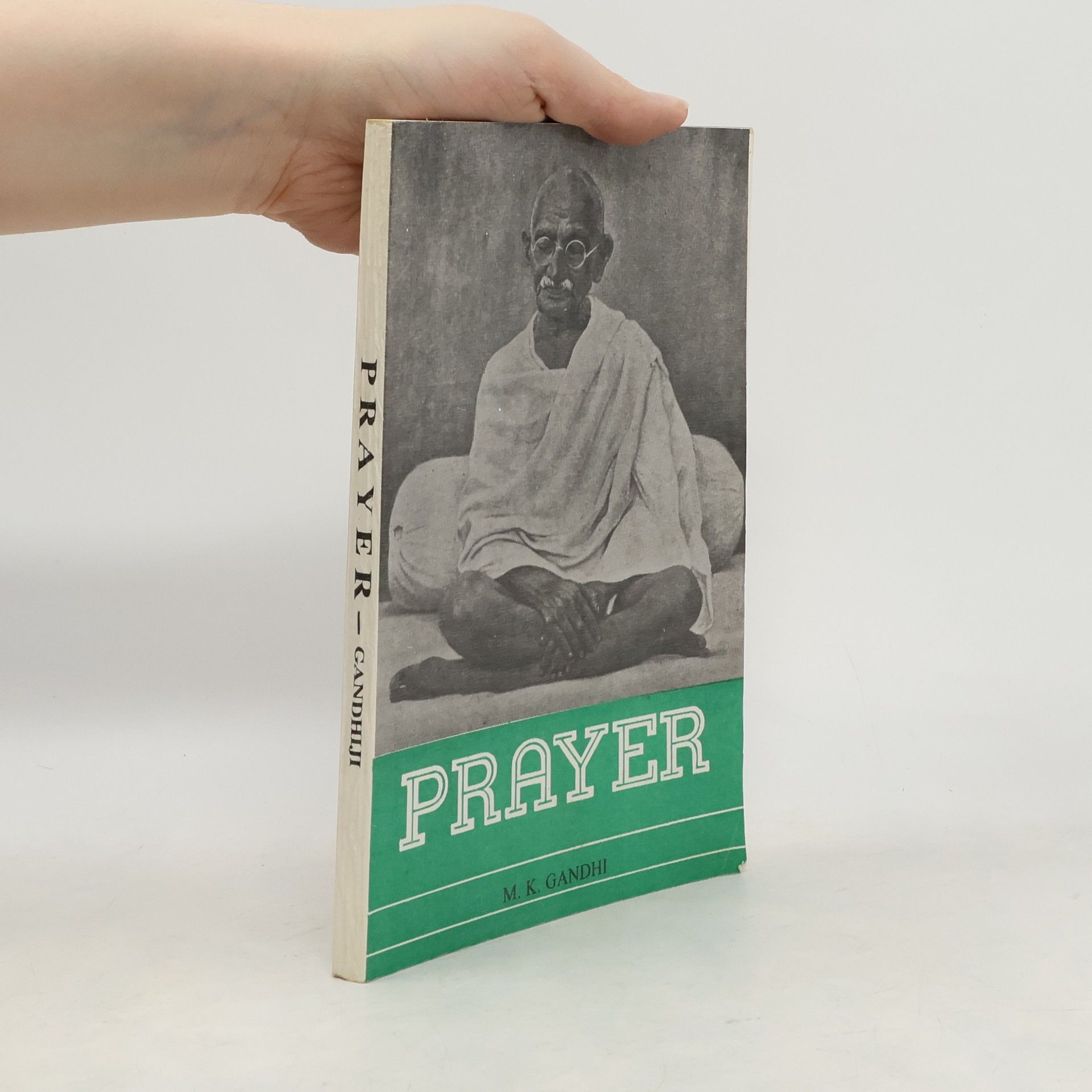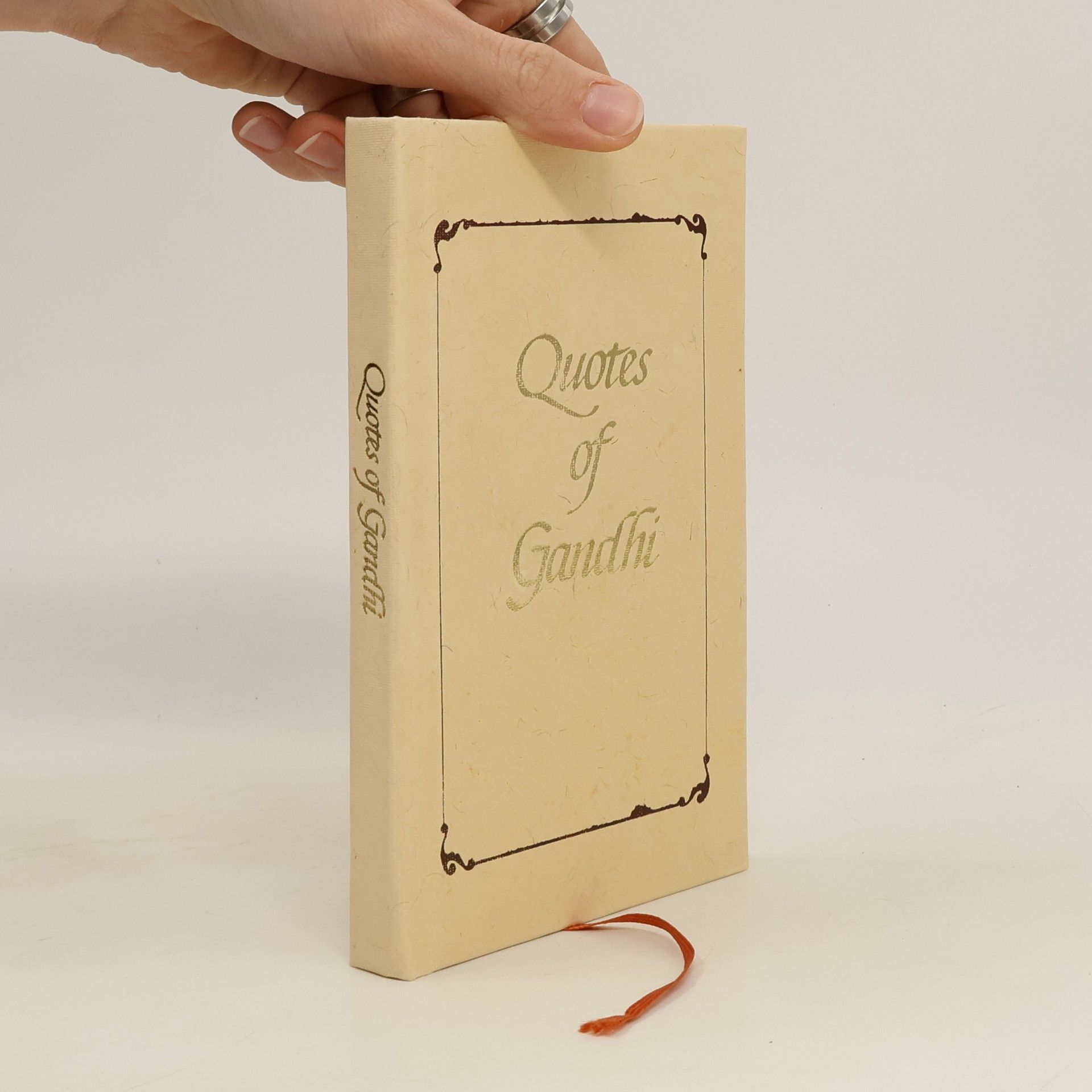Justice in Palestine
- 14 pages
- 1 hour of reading
Justice in Palestine is an essential work by one of the twentieth century's most powerful and authoritative voices.







Justice in Palestine is an essential work by one of the twentieth century's most powerful and authoritative voices.
Used. Very Good conditions. May have soft reading marks and name of the previous owner.
"No knowledge is to be found without seeking, no tranquility without travail, no happiness except through tribulation. Every seeker has, at one time or another, to pass through a conflict of duties, a heart-churning." Bhagavad Gita is the manifestation of the entire Hindu religion in one book, and the quintessential translation done by none other than the Mahatma, captures the text in its sense and spirit.
Mohandas K. Gandhi, called Mahatma (great soul), was the father of modern India, but his influence has spread well beyond the subcontinent and is as important today as it was in the first part of the twentieth century and during this nation's own civil rights movement. Taken from Gandhi's writings throughout his life, The Essential Gandhi introduces us to his thoughts on politics, spirituality, poverty, suffering, love, non-violence, civil disobedience, and his own life. The pieces collected here, with explanatory head notes by Gandhi biographer Louis Fischer, offer the clearest, most thorough portrait of one of the greatest spiritual leaders the world has known. Gandhi was inevitable. If humanity is to progress, Gandhi is inescapable. . . . We may ignore him at our own risk. -Dr. Martin Luther King, Jr. With a new Preface drawn from the writings of Eknath Easwaran In the annals of spirituality certain books stand out both for their historical importance and for their continued relevance. The Vintage Spiritual Classics series offers the greatest of these works in authoritative new editions, with specially commissioned essays by noted contemporary commentators. Filled with eloquence and fresh insight, encouragement and solace, Vintage Spiritual Classics are incomparable resources for all readers who seek a more substantive understanding of mankind's relation to the divine.
Includes selections from Gandhi's writings and speeches which express his thoughts, beliefs, and techniques.
Prayer Prayer is nothing else but an intense longing of the heart. You may express yourself through the lips; you may express yourself in the private closet or in the public; but to be genuine, the expression must come from the deepest recesses of the heart. There is an eternal struggle raging in man's breast between the powers of darkness and of light, and who has not the sheet-anchor of prayer to rely upon will be a victim to the powers of darkness. Begin, therefore, your day with prayer, and make it so soulful that it may remain with you until the evening. Close the day with prayer so that you may have a peaceful night free from dreams and nightmares.
Mohandas K. Gandhi is one of the most inspiring figures of our time. In his classic autobiography he recounts the story of his life and how he developed his concept of active nonviolent resistance, which propelled the Indian struggle for independence and countless other nonviolent struggles of the twentieth century. In a new foreword, noted peace expert and teacher Sissela Bok urges us to adopt Gandhi's "attitude of experimenting, of tesing what will and will not bear close scrutiny, what can and cannot be adapted to new circumstances,"in order to bring about change in our own lives and communities. All royalties earned on this book are paid to the Navajivan Trust, founded by Gandhi, for use in carrying on his work.
Gandhi's Life in his Own Words It is not my purpose to attempt a real autobiography. I simply want to tell the story of my numerous experiments with truth, and as my life consists of nothing but those experiments, it is true that the story will take the shape of an autobiography. But I shall not mind, if every page o it speaks only of my experiments. My experiments in the political field are now known, not only to India, but to a certain extent to the `civilized' world. For me, they have not much value; and the title of `Mahatma' that they have won for me has, therefore, even less. Often the title has deeplu pained me; and there is not a moment I can recall when it may be said to have tickled me. But I should certainly like to narrate my experiments in the spiritual field which are known only to myself, and from which I have derived such power as I possess for working in the political field. If the experiments are really spiritual, then there can be no room for self-praise. They can only add to my humility. The more I reflect and look back on the past, the more vividly do I feel my limitations.
Gandhi never wavered in his belief in non-violent protest. In 1915 he took up the struggle for independence from Britain, which became a reality in 1947. In this narrative biography, Gandhi also offers his life story as a reference for those who would follow in his footsteps.
This new selection of Gandhi's writings taken from his books, articles, letters and interviews sets out his views on religion, politics, society, non- violence and civil disobedience. Judith M. Brown's excellent introduction and notes examines his philosophy and the political context in which he wrote.